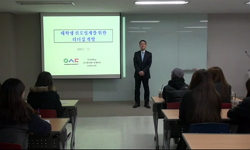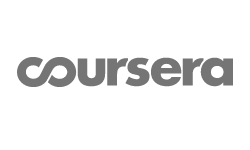최근 21세기의 변화된 조직을 이끌어 가는데 여성리더십이 주목을 받고 있다. 여성 리더십은 보살핌과 책임, 포용성, 대인관계, 권한위임 및 부하 배려 등에서 기존 경쟁중심의 남성 리더십...
http://chineseinput.net/에서 pinyin(병음)방식으로 중국어를 변환할 수 있습니다.
변환된 중국어를 복사하여 사용하시면 됩니다.
- 中文 을 입력하시려면 zhongwen을 입력하시고 space를누르시면됩니다.
- 北京 을 입력하시려면 beijing을 입력하시고 space를 누르시면 됩니다.

내러티브 탐구를 통해 본 여성리더의 리더십 형성과정에 관한 연구 = Her Story of Becoming a Leader : A Narrative Study on Women Leadership
한글로보기https://www.riss.kr/link?id=A103304899
- 저자
- 발행기관
- 학술지명
- 권호사항
-
발행연도
2017
-
작성언어
-
-
주제어
여성리더십 ; 경험학습 ; 여성리더십형성맥락 ; 여성리더십 형성 ; 영향요인 ; 내러티브 탐구 ; Women Leadership ; Leadership Development ; Narrative research
-
KDC
337
-
등재정보
KCI등재
-
자료형태
학술저널
- 발행기관 URL
-
수록면
71-107(37쪽)
-
KCI 피인용횟수
3
-
비고
학회 요청에 의해 무료로 제공
- DOI식별코드
- 제공처
- 소장기관
-
0
상세조회 -
0
다운로드
부가정보
국문 초록 (Abstract)
최근 21세기의 변화된 조직을 이끌어 가는데 여성리더십이 주목을 받고 있다. 여성 리더십은 보살핌과 책임, 포용성, 대인관계, 권한위임 및 부하 배려 등에서 기존 경쟁중심의 남성 리더십에 비해 이점을 지님으로서 복합다원화 된 현대사회에 적합한 리더십으로 평가받고 있다. 하지만 이러한 시대적 요구에도 여성리더십 형성에 의미 있는 시사점을 제공하는 연구는 매우 부족한 실정이다. 이에 본 연구는 내러티브 탐구를 통해 여성리더의 리더십 형성 맥락, 리더십 형성 영향요인을 파악함으로써 여성 리더십 개발에 의미 있는 시사점을 제공하고자 하였다. 본 연구를 위해 Clandinin과Connelly(2000)의 내러티브 탐구방법을 활용하였으며, 연구 참여자는 조직에서 근무하고 있는 여성리더 3명을 선정하여 자료는 개방코딩을 시작으로 내러티브 탐구의 분석 방법을 통하여 분석하였다. 이를 통해 다음과 같은 연구 결과를 도출하였다. 첫째, 여성리더들은 경험에 대하여 K o lb (1 9 8 4 )의 A (A ctio n ) - O (O b se rvatio n ) - R (R efle ctio n )-R’(Re-Reflection)의 과정을 통해 성장기, 탐색기, 확립기동안 독립심/책임감, 순응형 팔로워십, 개인/조직에 적합한 리더십 스타일을 형성하였다. 둘째, 여성리더의 리더십 형성 영향 요인에는 크게 개인적인 요소와 환경적인 요소가 있다. 공통적으로 개인적인 요소에서는 까다롭고 완벽한 성격을 소유 하고 있으며, 소통 능력이 뛰어나고, 사람에 대한 관심과 배려가 밑바탕이 됨을 알 수 있었다. 환경적인 요소는 여성리더가 자신만의 리더십을 형성함에 있어서 크게 영향을 주고 있음을 발견하였다. 특히, 직무와 구성원의 성비 등은 여성리더의 리더십 유형을 결정함에 있어서 매우 중요한 요인이다. 본 연구의 결과를 바탕으로 조직에서 여성리더의 선발과 리더십 개발 측면에서 성장기, 탐색기 동안 무엇을 학습했는가를 충분히 고려해야 하며, 또한 시기별로 적절한 리더십 훈련 프로그램과 근본적인 조직 문화의 변화가 중요하다는 시사점을 도출하였다.
다국어 초록 (Multilingual Abstract)
Since woman leaders are well known to have more advantages than man when it comes to caring, embracing, empowering, affectionate characteristics, developing woman leaders has become one of the most important factors for organizations to survive in thi...
Since woman leaders are well known to have more advantages than man when it comes to caring, embracing, empowering, affectionate characteristics, developing woman leaders has become one of the most important factors for organizations to survive in this rapidly changing environment. Organizations are expected to work with more women than ever, however, they do not know or have certain strategies to develop woman as leaders. Hence, the study was to understand and identify the context of women’s leadership development based on the life histories of three woman leaders who work at companies in Korea. The followings are the stories of what the researchers have found. First, these woman leaders have undergone through the periods of growth-search-establishment which is based on the Kolb’s (1984) learning process of A(Action)-O(Observation) -R(Reflection). Second, there are mainly two factors in the leadership formation of women leaders, which are a personal factor and an environmental factor. Three leaders are more sensitive and pursue perfection at work. They also had excellent communication skills. These woman leaders were distinguished from others by how they are considerate of other people in the organization. The study has found that the environmental factor is the most important in developing their own leadership. Especially, the task and the sex ratio of organization members are critical in determining the leadership types of woman leaders. Based on the result of this study, practical implication on women leadership development is suggested in relation to leadership training program and fundamental corporate culture change to support their growth.
목차 (Table of Contents)
- Ⅰ. 서 론
- Ⅱ. 이론적 배경
- Ⅲ. 연구방법
- Ⅳ. 연구결과
- Ⅴ. 결 론
- Ⅰ. 서 론
- Ⅱ. 이론적 배경
- Ⅲ. 연구방법
- Ⅳ. 연구결과
- Ⅴ. 결 론
참고문헌 (Reference)
1 신현만, "회사가 붙잡는 사람들의 1% 비밀" 위즈덤하우스 2009
2 서용희, "학교장의 여성적 리더십 특성에 대한 연구" 부산대학교 대학원 2013
3 권리라, "초등학교 여교장의 상징적 지도성 특성 연구" 이화여자대학교 대학원 2011
4 조용환, "질적연구(방법과 사례)" 교육과학사 1999
5 Cresswell, J, "질적연구 방법론 : 다섯가지 접근" 학지사 2010
6 조성남, "질적 연구방법과 실제" 그린 2011
7 환경일보, "지자체 관리직 여성공무원 얼마나 늘었나"
8 강대석, "조직 생산성에 기여하는 효과적인 팔로워십과 예측변수들" 한국생산성학회 19 (19): 97-124, 2005
9 강용관, "정서지능, 팔로워십, 조직성과 간의 관계분석 -육군 병사를 중심으로-" 한국기업교육학회 13 (13): 153-179, 2011
1 신현만, "회사가 붙잡는 사람들의 1% 비밀" 위즈덤하우스 2009
2 서용희, "학교장의 여성적 리더십 특성에 대한 연구" 부산대학교 대학원 2013
3 권리라, "초등학교 여교장의 상징적 지도성 특성 연구" 이화여자대학교 대학원 2011
4 조용환, "질적연구(방법과 사례)" 교육과학사 1999
5 Cresswell, J, "질적연구 방법론 : 다섯가지 접근" 학지사 2010
6 조성남, "질적 연구방법과 실제" 그린 2011
7 환경일보, "지자체 관리직 여성공무원 얼마나 늘었나"
8 강대석, "조직 생산성에 기여하는 효과적인 팔로워십과 예측변수들" 한국생산성학회 19 (19): 97-124, 2005
9 강용관, "정서지능, 팔로워십, 조직성과 간의 관계분석 -육군 병사를 중심으로-" 한국기업교육학회 13 (13): 153-179, 2011
10 이정희, "여성홈리스의 삶 경험에 대한 생애사 연구" 평택대학교 대학원 2013
11 박성희, "여성학 연구를 위한 생애사 연구법-내러티브 인터뷰" 17 : 243-264, 2002
12 김주엽, "여성적 리더십에 대한 이론적 소고" 15 (15): 131-153, 2003
13 강성애, "여성인적자원의 활용과 국가경쟁력과의 관계 연구: OECD국가를 중심으로" 한국인사행정학회 7 (7): 175-208, 2008
14 강혜련, "여성과 조직리더십" 학지사 2005
15 여성가족부, "여성가족통계연보"
16 김양희, "여성, 리더 그리고 여성 리더십" 삼성경제연구소 2006
17 최미섭, "여성 학교장의 리더십 특성 분석" 공주대학교 대학원 2014
18 김혜숙, "여성 리더의 특성과 효율성:조직의 성차별 문화의 영향" 한국사회및성격심리학회 23 (23): 33-54, 2009
19 김완석, "여성 리더의 심리 · 사회적 특성과 커리어지향성" 한국여성심리학회 9 (9): 1-23, 2004
20 강우란, "여성 리더계층의 부상과 전망" 삼성경제연구소 2007
21 이주희, "여성 관리직 진출 기업의 특성 인적자원관리 관행을 중심으로" 한국사회학회 37 (37): 4-130, 2003
22 오채선, "어린이집 초임원장의 내러티브: 리더십 형성하기" 한국영유아교원교육학회 16 (16): 435-461, 2012
23 강혜련, "신규 여성인력의 조직사회화의 훈련방향" 4 (4): 15-26, 1999
24 조경순, "성차와 리더십 : 문헌적 고찰" 아시아여성연구원 43 (43): 269-311, 2004
25 최행수, "생활체육 여성참여자의 생애사 : 국민생활체육회의 생활체육정책전개 중심으로" 한국체육대학교 대학원 2011
26 김지영, "생애사를 통해 본 '여성주의' 인식전환 경험 연구" 아주대학교 대학원 2014
27 남인숙, "변화하는 사회와 여성적 리더십" 대한정치학회 13 (13): 495-512, 2005
28 임창희, "리더십인지에 미치는 부하의 성 고정관념" 18 : 399-412, 1994
29 최무현, "리더십 입문 이론과 실제" 소통과 공감 2014
30 Richard, L. H., "리더십" 교육과학사 2013
31 허은, "노동시장 계층별 성별직업분리에 관한 연구: 수직적/수평적 분리를 중심으로" 한국사회학회 47 (47): 241-266, 2013
32 Clandinin, D. J., "내러티브 탐구" 교육과학사 2007
33 허숙민, "기혼 직장여성의 삶의 질 경로에 관한 연구 - 경북 경산시를 중심으로 -" 여성연구소 24 (24): 63-93, 2014
34 이주희, "기업조직 내 여성 리더십 특성연구" 아시아여성연구원 49 (49): 7-44, 2010
35 양춘희, "기업경쟁력과 여성관리자의 리더십" 10 (10): 139-168, 2003
36 염지숙, "교육 연구에서 내러티브 탐구(Narrative Inquiry)의 개념, 절차, 그리고 딜레마" 6 (6): 119-140, 2003
37 박기남, "관리직 여성의 사회적 자본과 성별 직무 분리" 한국사회학회 36 (36): 5-25, 2002
38 이기순, "공공조직에서 여성리더의 경험" 464-465, 2008
39 Turkay, S, "Youth leadership developm ent in virtual worlds : A case study" 2 : 3175-3179, 2010
40 Golem an, D., "Working with emotional intelligence" Bantam Doubleday Dell 1998
41 Astin, H. S., "Women of influence, women of vision : A cross-generational study of leaders and social change" Jossey-Bass Inc Pub 1991
42 Reis, S. M., "We can't change what we don't recognize : Understanding the special needs of gifted females" 31 (31): 83-89, 1987
43 Johnson, E. R., "Understanding the experiences of professional women leaders living and working in Sweden" 18 (18): 169-186, 2016
44 Rosenberg, J. B., "The ways women lead" 68 (68): 119-125, 1990
45 Kelley, R., "The power of followership : How to create leaders people want to follow and followers who lead themselves" D ubleday D ll 1992
46 Kelley, R., "The power of followership" Bantam Doubleday Dell Publishing Inc 1994
47 Morrison, A., "The new leaders" Jossey-Bass 1992
48 McCall, M. W., "The lessons of experience. How successful executives develop on the job" Lexington Books 1998
49 Orlando, R. C., "The impact of visible diversity on organizational effectiveness : Disclosing the contents in pandora’s black box" 8 (8): 265-291, 2002
50 Helgeson, S., "The female advantage : Women's ways of leadership" Doubleday 1990
51 Eagly, A. H., "The fem ale leadership advantage : An evaluation of the evidence" 14 (14): 807-834, 2003
52 Noble, K. D, "The dilemma of the gifted women" 11 : 376-378, 1987
53 Murphy, S. E., "The benefits of a long-lens approach to leader developm ent : Understanding the seeds of leadership" 22 (22): 459-470, 2011
54 Eagly, A. H., "Role congruity theory of prejudice to - ward female leaders" 109 (109): 573-, 2002
55 D utton, J. E., "Red light, green light : M aking sense of the organizational context for issue selling" 13 (13): 355-369, 2002
56 Mason, J., "Qualitative researching" Sage Publications 1996
57 이정미, "Q 방법론을 적용한 한국기업 구성원의 팔로워십 유형화" 영남대학교 2016
58 Kelly, R., "Position power and women's career advancement" 13 (13): 53-67, 1998
59 Bell, E., "Our separate ways : Black and white women and struggle for professional identity" Harvard Business School Press 2001
60 Morrison, E. W., "New comers' relationships : The role of social networkties during socialization" 45 (45): 1149-1160, 2002
61 Kanter, R., "Men and women of the corporation" Basic Books 1977
62 Aburdene, P., "Mega trends, women" Vil 1992
63 Day, D. V, "Longitudinal tests of an integrative m odel of leader developm ent : Charting and understanding developm ental trajectories" 22 : 545-560, 2011
64 Brescoll, V. L, "Leading w ith their hearts? H ow gender stereotypes of em otion lead to biased evaluations of fem ale leaders" 27 (27): 415-428, 2016
65 Glass, C., "Leading at the top : Understanding women's challenges above the glass ceiling" 27 (27): 51-63, 2016
66 Yukl, G. A., "Leadership in organizations" Prentice-Hall 2006
67 Williams, H. E., "Influential m anagers in the public sector: How can ODprepare managers in the public sector for today challenging working environment" 9 (9): 121-136, 2012
68 Thomas, L. T., "Impact of family-supportive work variable on work-family conflict and strain : A control perspective" 80 (80): 6-15, 1995
69 Ryan, M. K., "Getting on top of the glass cliff : Reviewing a decade of evidence, explanations, and im pact" 27 (27): 446-455, 2016
70 Nostrand, C. H. V., "Gender-Responsible Leadership. Detecting bias, implementing interventions" 1993
71 Eagly, A. H., "Gender and Leadership Style: A Meta-Analysis" 108 (108): 233-256, 1990
72 Avolio, B. J, "Full range leadership development : Building the vital forces in organizations" Sage Publication Inc 1999
73 Loden, M., "Fem inine leadership" Harper 1985
74 Kolb, D. A., "Experiential learning: Experience as the source of learning and development" Prentice Hall 1984
75 Avolio, B. J., "Estimating return on leadership development investment" 21 : 633-644, 2010
76 Bar-On, R, "Emotional quotient inventory" Multi-Health System, Inc 2001
77 Caruso, D. R., "Emotional intelligence and em otional leadership" Lawrence Erlbaum Associates 2002
78 Law, K. S., "Effect of supervisor–subordinate guanxi on supervisory decisions in China : An em pirical investigation" 11 (11): 751-765, 2000
79 Khatena, J. R., "Education psychology of the gifted" John Wiley & Sons 229-, 1982
80 Silverman, L. K., "Critical issues in gifted education" Aspern 43-89, 1986
81 Boies, K., "Communication and trust are key : Unlocking the relationship betw een leadership and team perform ance and creativity" 26 (26): 1080-1094, 2015
82 Mushonga, S. M., "Assessing the relationship between followership and the big five factor model of personality" 8 (8): 185-193, 2008
83 Sargent, "Androgynous manager" AMACOM 1981
84 Schwartz, L. L, "Advocacy for the neglected gifted : Fem ales" 24 (24): 113-117, 1980
85 Brusch, C, "A resource perspective on women’s entrepreneurship research, relevance and recognition" 1997
86 김영숙, "40대 자발적 이혼 여성 한부모의 생애사 연구" 성균관대학교 대학원 2014
87 허라금, "'여성주의 리더십' 이해를 위한 시론" 5 : 55-80, 2005
동일학술지(권/호) 다른 논문
-
기혼 여성의 성공적인 임신과 생애적 건강관리에 대한 질적 연구 : 근거이론 접근
- 한국여성정책연구원
- 우영지(Woo, Young Jee)
- 2017
- KCI등재
-
고령화와 젠더 불평등 : 노인 부부의 무급 노동을 중심으로
- 한국여성정책연구원
- 안미영(Mi Young An)
- 2017
- KCI등재
-
일-가정 갈등 그리고 가정-일 갈등이 기혼여성관리자의 주관적 경력성공에 미치는 영향 : 일-가정 양립 제도의 조절효과를 중심으로
- 한국여성정책연구원
- 엄혜경(Hye Kyung Eom)
- 2017
- KCI등재
분석정보
인용정보 인용지수 설명보기
학술지 이력
| 연월일 | 이력구분 | 이력상세 | 등재구분 |
|---|---|---|---|
| 2022 | 평가예정 | 재인증평가 신청대상 (재인증) | |
| 2019-01-01 | 평가 | 등재학술지 유지 (계속평가) |  |
| 2016-01-01 | 평가 | 등재학술지 유지 (계속평가) |  |
| 2012-01-01 | 평가 | 등재학술지 유지 (등재유지) |  |
| 2009-01-01 | 평가 | 등재학술지 선정 (등재후보2차) |  |
| 2008-01-01 | 평가 | 등재후보 1차 PASS (등재후보1차) |  |
| 2007-08-02 | 학회명변경 | 한글명 : 한국여성개발원 -> 한국여성정책연구원 |  |
| 2006-01-01 | 평가 | 등재후보학술지 선정 (신규평가) |  |
학술지 인용정보
| 기준연도 | WOS-KCI 통합IF(2년) | KCIF(2년) | KCIF(3년) |
|---|---|---|---|
| 2016 | 1.15 | 1.15 | 1.26 |
| KCIF(4년) | KCIF(5년) | 중심성지수(3년) | 즉시성지수 |
| 1.36 | 1.42 | 1.559 | 0.2 |





 스콜라
스콜라







